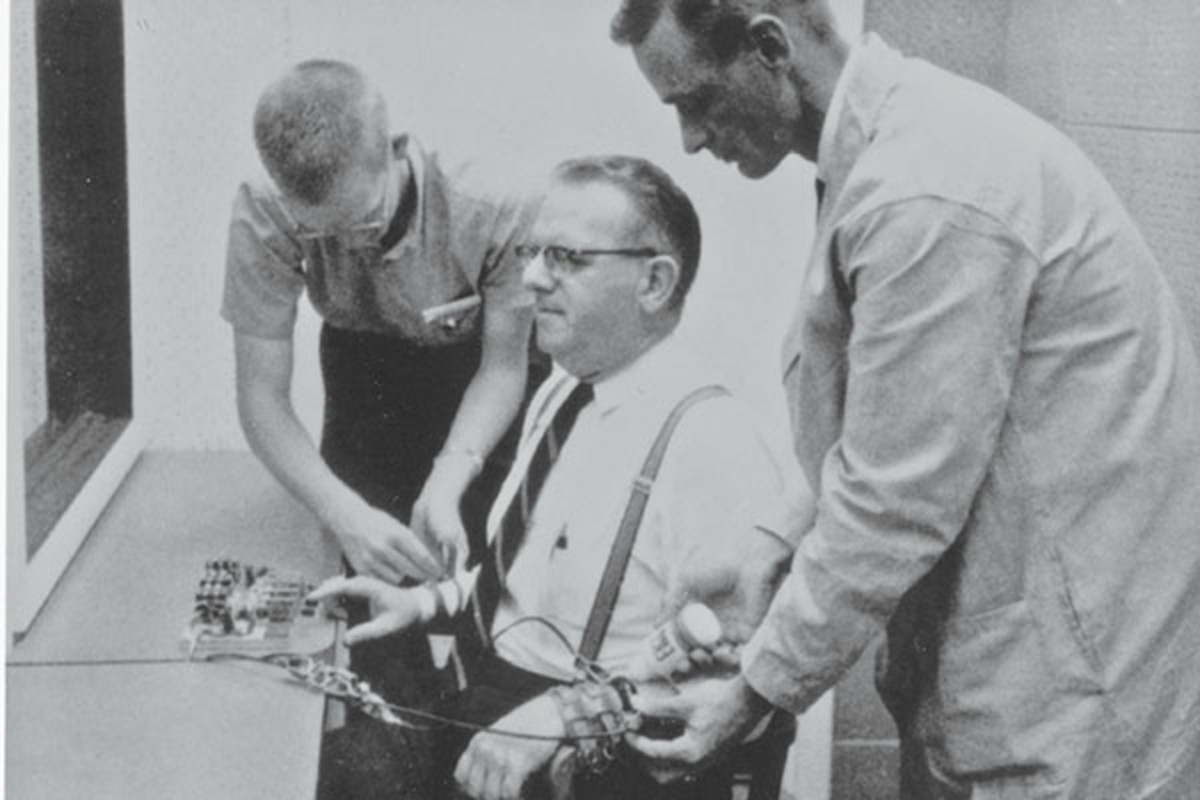
During the Nuremberg Trials, the primary defense of Nazi war criminals were that they were following orders from their superiors. Their reasoning to judges was that they knew what they were doing was wrong, but they exercised obedience to their commanding officers for fear of retaliation. Years after the a Trials in 1963, Yale phycologist Stanley Milgram decided that he wanted to test the Nazis’ court defense and determine where humans draw the line between morality and obedience. In order to do this, Milgram took out an ad in a newspaper asking for calling for males only, to replicate the mindset of Nazi soldiers, to participate in a study of learning. Participants were not told the parameters of the study, and were paid $4.50 to show up. Participants were paired with another person who was not actually another participant, they were actors hired by Milgram but the real participant was not aware of this. Then, the participant and actor would draw straws to see who would be the teacher and who would be the learner. The draw was rigged to make the participant the teacher, and the actor the learner. Next, the learner was strapped to a chair with electrodes ranging from a slight shock to a severe shock. The shocks were actually fake but the participants did not know this. The teacher was given a list of words to read to the learner, and the learner would have to select the matching word from a 4 different options. If the learner got the question wrong, which the actors often did on purpose, the teacher was instructed to give them an electric shock, with shocks increasing in velocity for each wrong answer. Once the fake shocks started to get to a dangerous level, a few participants refused to continue increasing the voltage for fear of “harming” their “partner”. If a teacher refused, they were met with one, or all four of these prods spoken by Milgram:
Prod 1: Please continue.
Prod 2: The experiment requires you to continue.
Prod 3: It is absolutely essential that you continue.
Prod 4: You have no other choice but to continue.
After receiving these prods, 65% of participants continued to the highest shock voltage available. In Milgram’s mind, this proved his theory that the Nazi soldiers were being truthful when they said they knew what they were doing was wrong, but decided to be obedient to their superior officers. The experiment was replicated 18 times, and each time yielded similar results that supported the conclusion that obedience is more powerful than morality.
Works Consulted :
Mcleod, Saul. “The Milgram Experiment.” Milgram Experiment | Simply Psychology, Simply Psychology, 5 Feb. 2017, www.simplypsychology.org/milgram.html.